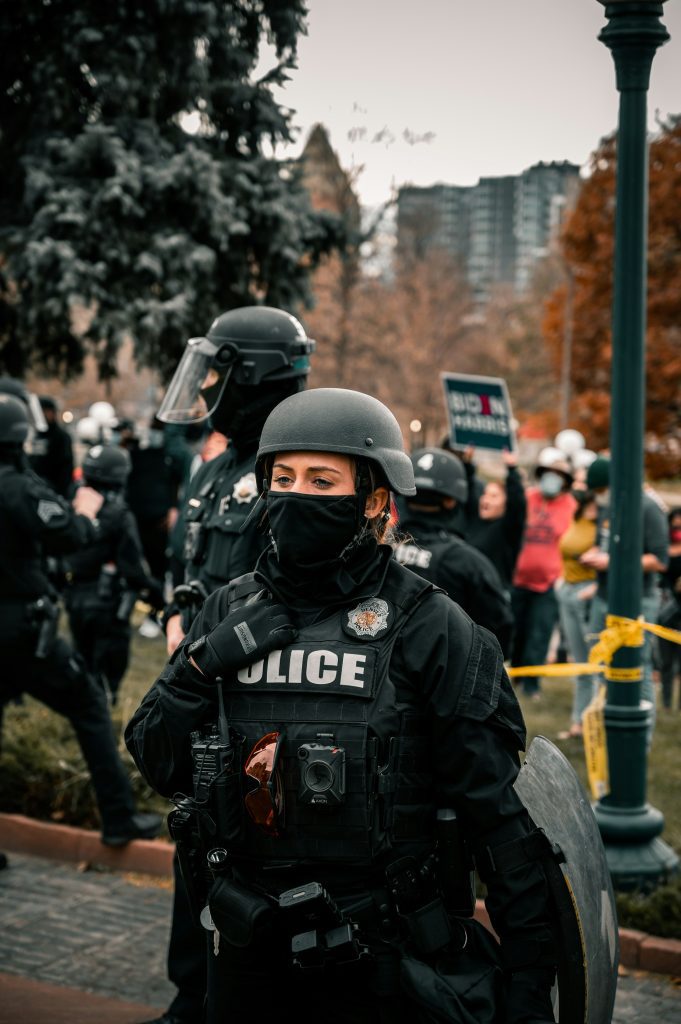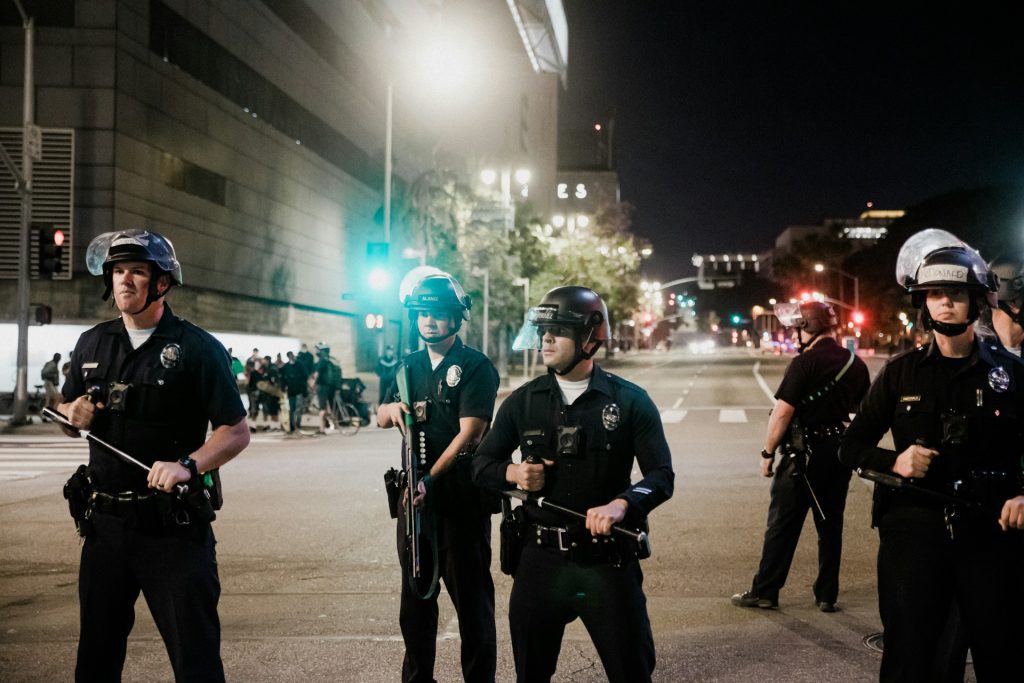Thinking about a career in law enforcement jobs? You’re looking at one of the broadest career fields in the country—and one of the most misunderstood.
Law enforcement isn’t just about being a cop. It spans local police departments, federal agencies, corrections facilities, courtroom security, wildlife enforcement, and specialized investigative units. The day-to-day reality varies wildly depending on which path you choose. A patrol officer in a small town deals with completely different challenges than an FBI agent investigating white-collar crime or a corrections officer managing a maximum-security prison.
Before you commit to this path, you need to understand what you’re actually signing up for. The job comes with real rewards—serving your community, job stability, decent benefits, and work that genuinely matters. But it also comes with serious challenges that don’t always show up in recruiting brochures: shift work that wrecks your sleep schedule, exposure to traumatic situations, public scrutiny of every decision you make, and mental health risks that agencies are only recently starting to take seriously.
This guide breaks down the major career paths in U.S. law enforcement, what it takes to get hired, what you can expect to earn, how careers progress, and what you should honestly think about before diving in. We’ll also look at trends shaping the field right now—because law enforcement in 2025 looks different from what it did even five years ago.
Read Also: CVS Health Careers in the USA — Everything You Need to Know
Major Law Enforcement Career Paths
 Let’s start by mapping out what’s actually available. Law enforcement is way more diverse than most people realize.
Let’s start by mapping out what’s actually available. Law enforcement is way more diverse than most people realize.
Local and Municipal Police Officers
There are what most people picture when they think “cop.” You’d work for a city police department or county sheriff’s office, patrolling neighborhoods, responding to 911 calls, handling traffic enforcement, and doing community policing. This is frontline work. You’re the first responder to everything from noise complaints to domestic violence to serious crimes. The job varies dramatically based on where you work—policing in a small rural town is nothing like policing in a major city. Rural officers might know everyone in town and spend their nights responding to wildlife on the highway. Urban officers deal with higher call volumes, more serious crime, and neighborhoods with complex social issues.
Detectives and Criminal Investigators
This work cases rather than patrols streets. You might investigate homicides, fraud, assault, property crimes, or specialized areas like child abuse or financial crimes. This work can happen at the local, state, or federal levels. Detectives typically work in plainclothes, spend time interviewing witnesses and suspects, collect and analyze evidence, and prepare cases for prosecution. It’s more cerebral than patrol work, with less immediate physical danger but more paperwork and court testimony. Most people don’t start here—you usually need patrol experience first.
State Troopers and Highway Patrol
This operates at the state level, focusing heavily on highway safety, traffic enforcement, and accident response. But they also handle criminal enforcement in rural areas and state jurisdictions where local departments might be small or nonexistent. The job involves a lot of driving, vehicle stops, and dealing with serious highway accidents. If you like the independence of working alone and don’t mind long stretches on the road, this might appeal to you.
Correctional and Prison Officers work inside jails, prisons, or detention centers. This is law enforcement, but you’re not on the streets—you’re managing a controlled environment filled with people who don’t want to be there. Your job involves supervision, security, conducting searches, managing inmate behavior, preventing violence, and maintaining order in a space where tension runs high. It’s psychologically demanding work. You’re constantly watching your back, reading situations, and managing interpersonal dynamics. The Bureau of Labor Statistics classifies this under protective service occupations, and the work environment is completely different from patrol.
Federal Law Enforcement
This opens up a whole range of possibilities. The FBI, DEA, ATF, U.S. Marshals, Border Patrol, Secret Service, ICE, and other agencies all have different mandates. You might investigate federal crimes, handle border security, work in counterterrorism, investigate financial crimes, provide diplomatic protection, or do intelligence work. Federal positions typically require higher education, more rigorous background checks, and intensive training. The work can be highly specialized and often involves multi-jurisdictional cases. Pay and benefits tend to be better than local law enforcement, but competition is fierce and the hiring process can take a year or more.
Specialized Roles
This includes things most people don’t think about. Maritime Enforcement Specialists work for the U.S. Coast Guard doing law enforcement on the water—drug interdiction, fisheries enforcement, search and rescue with a law enforcement component. Bailiffs maintain order in courtrooms and escort prisoners during proceedings. Game Wardens enforce wildlife and conservation laws, often working alone in remote areas. Court Security Officers protect federal buildings and courthouses. These roles appeal to people with specific interests—if you love being outdoors and care about conservation, game warden work combines those interests with law enforcement.
The point is this: “law enforcement” is an umbrella covering dozens of different jobs. Your day-to-day experience, your work environment, your stress levels, and what you actually do will vary dramatically based on which path you choose.
Read Also: Daily Pay Jobs in the USA- How to Apply and Salaries
Requirements to Enter Law Enforcement Jobs
 So what does it actually take to get hired? Requirements vary by agency, but here are the common elements.
So what does it actually take to get hired? Requirements vary by agency, but here are the common elements.
Education requirements
These are all over the map right now. According to the Bureau of Labor Statistics, police officer and detective positions require anywhere from a high school diploma to a college degree. Some local departments will hire you with just a high school diploma and put you through their academy. Others strongly prefer or require at least some college. Federal agencies, especially for agent positions, typically want a bachelor’s degree minimum—and often prefer candidates with degrees in criminal justice, criminology, psychology, accounting, computer science, or related fields.
There’s actually an ongoing debate about education requirements in law enforcement. Some departments are dropping college degree requirements because they’re struggling to fill positions. Others argue that higher education produces better officers who handle complex situations more effectively. Reddit discussions among law enforcement professionals show this tension—some officers feel the degree requirement was unnecessary gatekeeping, while others think it improves the quality of candidates and their decision-making on the job.
Here’s the practical reality: having a degree keeps more doors open. It’s often required for federal work and for advancement into leadership positions, even in local departments. But if you’re interested in local patrol work and can’t afford four years of college, you can still find departments that will hire you based on your high school diploma, life experience, and performance in their academy.
Age, citizenship, and background checks
There are non-negotiables for most positions. Many departments require you to be at least 21 years old, though some will hire at 18 or 19 for certain roles. A clean criminal record is typically required—felony convictions will disqualify you almost everywhere, and even some misdemeanors can be problems depending on the nature of the offense and how long ago it occurred.
For federal law enforcement, U.S. citizenship is usually mandatory. Background investigations for these positions are thorough—they’ll talk to your former employers, neighbors, and references. They’ll examine your financial history, drug use history, and personal life. The process is designed to identify potential security risks or integrity issues. If you’ve got a messy past, be honest about it upfront. Trying to hide things and getting caught is worse than admitting to past mistakes and showing how you’ve changed.
Physical fitness and training
The requirements are real. Most agencies require you to pass physical fitness tests covering running, strength, and agility. You need to be in decent shape before you apply, and you’ll need to maintain that fitness throughout your career. Once hired, you’ll attend a police academy—this typically runs several months and covers law, defensive tactics, firearms training, emergency vehicle operations, and scenario-based training. The academy is physically and mentally demanding. People do wash out.
For federal agencies, training is more intensive. FBI agents train at Quantico. Other federal agencies use the Federal Law Enforcement Training Centers (FLETC). These programs can run 12 to 20 weeks or more and involve academic coursework, physical conditioning, firearms proficiency, and practical exercises. You’re essentially living on campus during training.
Experience requirements
This varies by position. Entry-level patrol officers don’t need prior law enforcement experience—that’s the starting point. But detective positions, specialized units, and most federal roles want to see experience. Many federal agencies want three to five years of relevant work experience, which could be prior law enforcement, military service, or professional experience in a related field like accounting (for financial crimes) or computer science (for cyber investigations).
Skills and qualities
This matters as much as formal credentials. Law enforcement needs people with good judgment, strong communication skills, and the ability to stay calm under pressure. You need integrity—because you’ll face situations where it would be easy to cut corners or abuse authority, and the job requires you not to. You need decent interpersonal skills because you’re constantly dealing with people, often in their worst moments. Empathy helps. So does a thick skin, because you’ll encounter people who hate you simply because of the uniform you’re wearing.
Specialized skills can set you apart. Speaking multiple languages is valuable, especially Spanish in many parts of the U.S. Technical skills in areas like accounting, IT, or engineering can open doors to specialized federal roles. Military experience is looked upon favorably by many agencies and can count toward experience requirements.
Read Also: Best Jobs in the USA (2025 Guide)
Salary and Job Outlook for Law Enforcement Jobs
Let’s talk money in law enforcement jobs, because that matters.
According to the Bureau of Labor Statistics, the median annual wage for police and detectives was $77,270 in May 2024. But that number hides significant variation. Detectives and criminal investigators earn more, around $93,580. Police and sheriff’s patrol officers come in around $76,290. Fish and game wardens average about $68,180.
Protective service occupations more broadly, which include correctional officers, bailiffs, and related roles, had a median wage of $50,580. That’s substantially less than what patrol officers make. Correctional work is demanding and often pays less than you’d expect given the environment.
Private detectives and investigators—who aren’t government law enforcement but work in related fields—earn a median of about $52,370 according to BLS data.
Salary also varies significantly by location. Federal positions typically pay more than local, and major metropolitan areas usually pay more than rural departments—though the cost of living offsets some of that. Some departments offer substantial overtime opportunities, which can boost take-home pay significantly. Others are understaffed, meaning you might be working more hours than you’d prefer just to cover shifts.
Benefits often matter more than base salary. Many law enforcement positions offer defined-benefit pension plans, which are increasingly rare in other fields. Health insurance is typically solid. Many departments allow retirement after 20 or 25 years of service, meaning you could retire in your mid-40s with a pension and move into a second career. That’s a significant benefit if you’re thinking long-term.
The job outlook is steady. The BLS projects employment for police and detectives will grow 3% from 2024 to 2034—roughly average growth compared to all occupations. That translates to about 62,200 openings per year on average, though many of those openings come from turnover and retirements rather than new positions.
For protective service roles broadly, BLS projects about 423,600 openings annually through 2034 across replacement needs and new positions.
Here’s what the numbers don’t tell you: many departments are struggling with recruitment and retention right now. Some agencies that used to have waiting lists of applicants are now scrambling to fill positions. Officers are leaving the profession at higher rates, burned out by the work, the scrutiny, or better opportunities elsewhere. Some federal agencies are offering aggressive signing bonuses—U.S. Park Police, for example, recently advertised $70,000 hiring bonuses to attract candidates. That tells you something about the current recruitment environment.
If you’re entering the field now, job availability is probably better than it has been in years. But ask yourself why that is. Is it because the job has gotten harder? Because public attitudes toward law enforcement have shifted? Because agencies haven’t addressed the underlying issues with working conditions or support? Those are important questions.
Read Also: Workers’ Compensation Attorneys in the USA
Career Paths and Advancement for Law Enforcement Jobs
How do careers actually progress in law enforcement?
Most people start as patrol officers in local or county departments. You’re working the street, responding to calls, learning the job from the ground up. This phase typically lasts several years. You’re gaining experience, building credibility, and figuring out what aspects of law enforcement interest you most.
After you’ve got some years under your belt, doors open. You might move into detective work, investigating specific types of crimes. You might join specialized units—SWAT, K-9, community policing, traffic reconstruction, cyber crime, narcotics. Each specialty requires additional training and comes with different work environments and stressors.
Some officers transition from local or state agencies into federal law enforcement later in their careers. You’ve built experience and credibility, and federal agencies value candidates who already know the job. The transition can mean better pay, different types of cases, and sometimes less shift work—though that varies by agency and role.
The promotional ladder in most local agencies looks something like this: Officer → Corporal or Sergeant → Lieutenant → Captain → Chief. Each step involves more administrative responsibility and less street work. Some people love moving into leadership and management. Others hate it—they became cops to work cases or patrol, not to sit in meetings and manage budgets. Know yourself. Not everyone wants or should pursue promotion.
Lateral moves are common. You might move from one department to another for better pay, a different environment, or to be closer to family. Some officers move from patrol into training roles, internal affairs, or administrative positions that keep them in law enforcement but off the street.
Retirement and benefits are a major consideration. Many agencies offer retirement after 20 to 25 years of service, often with pensions based on your highest earning years. This means people who start at 21 or 22 can retire with a pension in their mid-40s and begin second careers—some stay in law enforcement in different roles, others move into completely different fields. That early retirement option is one of the field’s biggest financial benefits if you can make it to that point.
Read Also: Computer Science Jobs in the USA
The Reality Check for Law Enforcement Jobs: Pros and Cons
Let’s be honest about what law enforcement jobs actually offer and what it costs you.
Law Enforcement Jobs: The pros are real.
You’re doing work that matters. When someone calls 911 because their life is falling apart, you’re the person who shows up. That sense of service and public impact draws a lot of people to this field. The work is genuinely meaningful in ways that desk jobs often aren’t.
There’s diversity in the work. You’re not doing the same thing every day. One shift might involve a traffic accident, a domestic dispute, a welfare check, a theft investigation, and community engagement. For people who hate routine, that variety is appealing.
Job stability is generally solid. Law enforcement isn’t going away. Barring serious misconduct, you’re unlikely to get laid off. Benefits are typically good—health insurance, retirement plans, paid time off. The career ladder is structured and clear if you want advancement.
But the cons are serious, and you need to think hard about them.
The stress and risk are real. Yes, there’s physical danger—some of it obvious, some of it emerging suddenly from situations that seemed routine. But the psychological toll might be worse. You’re exposed to traumatic situations regularly. Fatal accidents. Child abuse. Domestic violence. Overdoses. Suicides. You see humanity at its worst, repeatedly, and you’re expected to just absorb it and keep working.
Work hours wreck your life outside the job. Shift work means nights, weekends, and holidays. Your schedule rotates. You miss your kids’ events. Your relationships are strained. Your sleep schedule is constantly disrupted, which affects your health in ways that compound over the years. Overtime is common, either voluntary (for the money) or mandatory (because the department is short-staffed). The job doesn’t respect your personal time.
Public scrutiny has intensified. Every decision you make might be recorded, posted online, and judged by people who’ve never faced a similar situation. Sometimes that scrutiny is fair and necessary. Sometimes it’s not. Either way, you’re working in an environment where trust in law enforcement has eroded in many communities, and you’re dealing with that reality every shift.
Burnout is common. The combination of stress, trauma exposure, difficult work hours, and public criticism wears people down. Mental health issues, including PTSD, depression, and substance abuse, affect law enforcement at higher rates than the general population. Suicide rates among law enforcement are elevated. Departments are starting to provide better mental health support, but stigma around seeking help persists in the culture.
The hiring process is rigorous and invasive. Background checks dig into your life. Psychological evaluations probe your mental health. Physical fitness tests might eliminate you. Polygraph exams ask uncomfortable questions. The process from application to hiring can take six months to over a year for federal positions. You might go through all of that and still not get hired.
Read Also: Side Jobs in the USA (Hiring Immediately)
What You’re Actually Signing Up For: Day-to-Day Realities
Let’s get specific about what different roles actually look like day-to-day, because job descriptions don’t capture the reality.
If you’re a patrol officer, your shift might start with roll call, where you get briefed on recent crimes, wanted suspects, and today’s priorities. Then you hit the streets. Maybe you spend the first hour patrolling, checking on businesses, and being visible in the community. Then the calls start. A shoplifting complaint—you respond, interview the store manager, review footage, maybe make an arrest, transport to jail, spend an hour on paperwork. Before you finish that, you get dispatched to a welfare check on an elderly resident who hasn’t been seen in days. You find them deceased. Now you’re securing a scene, calling for detectives, notifying next of kin, and dealing with a situation that will stick with you.
If you’re a detective, you’re not on patrol. You might spend your morning reviewing case files from overnight arrests, determining which cases have prosecutable evidence and which are going nowhere. You interview a sexual assault victim—a three-hour conversation that requires enormous empathy and patience while gathering legally admissible information. Also, spend two hours trying to track down witnesses who don’t want to talk to you. You write search warrants, coordinate with prosecutors, and testify in court about a case from eight months ago that you barely remember until you review your notes the night before. There are no lights and sirens. It’s methodical, detail-oriented work with occasional breakthroughs and frequent frustrations. You go home with cases unsolved, knowing some of them never will be.
If you’re in corrections, you’re inside a facility managing hundreds or thousands of people who don’t want to be there. Your shift involves security checks, supervising meal times, conducting searches, managing conflicts between inmates, watching for contraband, and maintaining order through a combination of established procedures and interpersonal skills. The environment is controlled but tense. You’re reading body language constantly, watching for signs of trouble, and managing the complex social dynamics of a prison population. Violence can erupt. You see people at their lowest. And unlike patrol, you can’t leave the situation—you’re locked inside that environment with them for your entire shift.
This is what you’re actually choosing. Not the TV version. Not the recruiting video version. This version.
Read Also: Severance Pay in the USA- Everything You Need to Know
Law Enforcement Jobs: Emerging Trends and What They Mean for You
Law enforcement jobs are changing, and if you’re entering the field now, you need to understand where it’s heading.
Community-oriented policing
This is the buzzword everyone uses, but implementing it is complicated. There’s increasing emphasis on de-escalation techniques, building relationships with neighborhoods, and viewing law enforcement as part of the community rather than separate from it. Some officers appreciate this shift. Others feel it complicates their ability to do enforcement work. If you’re entering now, expect training that emphasizes communication, cultural competency, and conflict resolution alongside traditional tactical training.
Technology and cyber enforcement
They are becoming huge. Traditional crimes are moving online. Fraud, harassment, exploitation, and even organized crime operate in digital spaces. Departments need officers with technical skills. Digital forensics, cyber investigation, and intelligence analysis are growth areas. If you’ve got IT skills or are willing to develop them, that can set you apart and open specialized roles.
Workforce challenges
Challenges are real and immediate. Many departments are losing officers faster than they can hire. Reddit discussions among law enforcement professionals highlight this—some local agencies have lost thousands of personnel. Reasons vary: retirements, burnout, officers leaving for federal positions or private sector jobs, and fewer people applying in the first place. This creates opportunity if you’re job hunting, but it also means you might be working understaffed, which increases stress and workload.
Some specialized federal agencies are recruiting aggressively with significant hiring bonuses. That tells you two things: there’s demand, and agencies are struggling to fill positions through traditional means. It’s worth asking why recruitment is so difficult right now and what that means for working conditions.
Education requirements are shifting
Education requirements are shifting, and the direction isn’t uniform. Some states and departments are dropping college degree requirements to expand their applicant pool. The argument is that good policing requires judgment, integrity, and people skills more than academic credentials. Others maintain that education produces better officers who handle complex situations more effectively.
The debate is genuine. Some experienced officers will tell you the degree requirement was arbitrary and excluded qualified candidates. Others will tell you education matters for understanding constitutional law, psychology, and community dynamics. Both perspectives have merit. What matters for you is knowing that requirements vary by agency, and the trend toward reducing educational barriers might open doors that were previously closed.
Mental health and wellness
These are finally getting attention. Historically, law enforcement culture viewed mental health struggles as a weakness. That attitude is slowly changing. More departments are investing in peer support programs, counseling services, and wellness resources. Some agencies provide mandatory mental health check-ins after traumatic incidents. This is progress, but cultural stigma persists in many places. If you enter this field, take your mental health seriously from day one. Build coping strategies. Use available resources. Don’t adopt the old-school mentality that you should just toughen up and push through.
Read Also: Massage Therapy Schools in the USA
How to Actually Prepare for This Career
If you’re serious about pursuing law enforcement jobs, here’s how to position yourself well.
Research specific agencies thoroughly.
Don’t just apply everywhere. Figure out what environment suits you. Do you want urban or rural? Local, state, or federal? Large department or small? Talk to officers in different agencies. Ask about culture, support, leadership, and what they wish they’d known before joining. Agencies vary wildly in how they treat officers, their resources, their leadership quality, and their work environment.
Get educated strategically.
If you can afford college and have the time, a degree in criminal justice, criminology, psychology, or a related field helps—especially for federal work and advancement. But if college isn’t financially feasible or practical, don’t let that stop you from pursuing local patrol work in departments that hire with high school diplomas. Consider community college as a middle option—you can take criminal justice courses, keep costs down, and keep the door open for completing a bachelor’s later if needed.
Physical fitness isn’t optional.
Start now. Law enforcement physical assessments typically include running (often a 1.5-mile run with a minimum time), push-ups, sit-ups, and sometimes agility tests. You need cardiovascular endurance, functional strength, and basic agility. You don’t need to be an elite athlete, but you need to be in solid shape. Many applicants wash out at the fitness test simply because they didn’t prepare.
Gain relevant experience.
Volunteer with community organizations. Do internships with criminal justice agencies if available. Work in security, even if it’s low-level—it shows you understand shift work and dealing with the public. Military service is looked upon very favorably and can fulfill experience requirements for some federal positions. Anything that demonstrates reliability, responsibility, and relevant skills helps.
Prepare for the hiring gauntlet.
The process will test you. Practice written exams—many tests, reading comprehension, reasoning, and scenario judgment. Prepare for panel interviews where you’ll answer behavioral questions. Be ready for extensive background checks—get your references lined up, and be honest about anything in your past that might surface. Practice for scenario-based evaluations, where they put you in simulated situations to see how you respond. Understand that polygraph tests, while controversial, are used by many agencies—stay calm and answer honestly.
Network and learn from the inside.
Talk to law enforcement officers. Many departments allow ride-alongs where you can shadow an officer for a shift—do this if possible. You’ll learn more about the reality of the job in one eight-hour ride-along than from months of research. Join criminal justice student organizations if you’re in school. Attend community events where you can interact with officers. Building genuine connections helps you understand the culture and can provide mentorship as you navigate the process.
Look into cadet or explorer programs.
Many departments offer programs for younger applicants (typically high school or college age) to start learning about law enforcement. These programs provide exposure, training, and connections that can help later when you’re applying for real positions.
Read Also: Public Service Jobs in Canada: The 2025 Applicant Playbook
Making the Decision
Law enforcement jobs can be deeply meaningful, stable, and rewarding. It can also be exhausting, traumatic, and disillusioning. Sometimes it’s both on the same shift.
Before you commit, get clear on what “law enforcement” actually means to you. Are you drawn to serving your community? Solving crimes? The structure and benefits? The action and variety? Understanding your motivations helps you figure out which path fits.
Also, be honest about what you’re not willing to sacrifice. If a stable schedule and weekends off are non-negotiable, most law enforcement roles will disappoint you. Also, if you struggle with authority or don’t work well in rigid hierarchies, the paramilitary structure of many agencies will frustrate you. If you need immediate gratification and clear wins, the slow pace of investigations and the justice system will drive you crazy.
Talk to people who have left law enforcement jobs and ask why. You’ll learn as much from their reasons for leaving as you will from those who stayed and loved it.
This is a demanding field that asks a lot from you—your time, your mental health, your relationships, your sense of safety. It offers real rewards in return, but not everyone finds the trade-off worth it. And that’s okay. It’s better to figure that out before you’re three years in, burned out, and wondering why you did this.
If you do this, go in with eyes open. Prepare well. Take care of yourself. Find meaning in the work. And know that you can always reassess. Starting in law enforcement doesn’t mean you’re locked in forever. People transition out into other fields all the time—security, investigations, consulting, teaching, or completely different careers. The skills you build are transferable.





